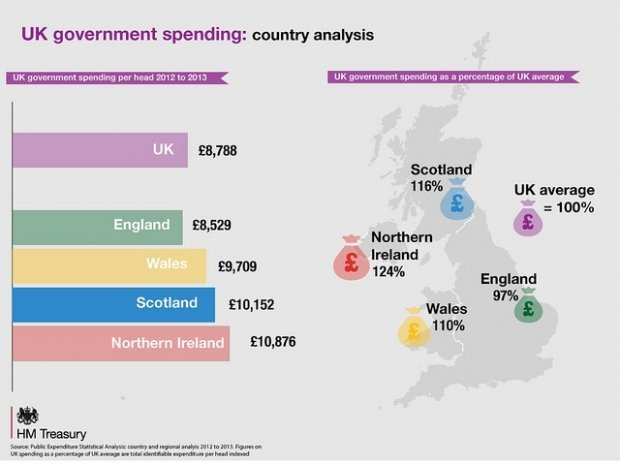What is the Barnett formula and how does it work? Here’s what you need to know

The referendum on Scottish independence may be over, but the issues and pledges that electrified the campaign continue to spark controversy.
One of these is the system used to determine the levels of public spending in Northern Ireland, Scotland and Wales known as the Barnett formula.
At the tail end of the referendum campaign, the three leaders of the main Westminster parties signed a pledge vowing to retain the Barnett formula.
The formula takes its name from Joel Barnett, a former chief secretary to the Treasury, who devised the system in the late 1970s. It was originally meant as a temporary solution to arguments in the cabinet about the possibility of devolution in 1979.
The formula decides how much cash will be doled out to each nation on the basis of population and which powers have been devolved.
So why has this arcane method of public finance become so controversial?
The debate over the Barnett formula has intensified on both sides of the border during the Scottish referendum because Scotland is the principal beneficiary of it. The UK government's spend per head is usually 20 per cent higher in Scotland than it is in England.

In 2013, Scotland scooped £10,152 per head while England received £8,529. The formula is not based on need and takes no account of different costs across the nations or the amount of tax paid.
This has led to a situation where Wales, which is poorer than Scotland, receives less in public spending. Discontent has been rising in England with the apparent unfairness of the system and the perception that English taxpayers are overly subsidising extravagant levels of Scottish public spending.
While the Westminster parties have pledged their support for the formula, the man who invented it has a radically different view.
Speaking to the Telegraph, Lord Barnett said:
It is unfair and should be stopped, it is a mistake. This way is terrible and can never be sustainable, it is a national embarrassment and personally embarrassing to me as well.
If we want to give them some money after devo-max OK, but do it honestly and openly. Not by doing so under the table like this."